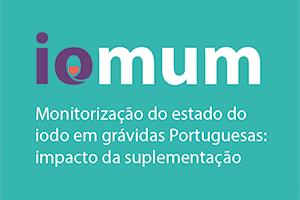A research group led by CINTESIS – Center for Health Technology and Services Research will start this week the recruitment of pregnant women for the IoMum-Norte research project at the Hospital Center of São João. The objective is to evaluate the iodine levels of pregnant women residing in Portugal and to learn the professionals’ practice regarding iodine within the National Health System.
Led by the researcher Elisa Keating, the IoMum-Norte project will invite pregnant women to cooperate by giving urine tests at the beginning and at the end of their pregnancy. It will also be requested a blood sample through a finger prick at the end of pregnancy. “Participation is voluntary and there is no risk to the health of the woman or the baby associated with the study,” says the scientist.
“The final objective of the project is to contribute to informing national health entities about the state of iodine in pregnant women and thus to monitor the effectiveness of public health policies and adjust them to the Portuguese reality,” explains Elisa Keating.
Iodine is an essential nutrient for humans, especially during pregnancy and childhood, because of the role it plays in the production of thyroid hormones. “During pregnancy, an adequate intake of iodine is essential to ensure the proper development and maturation of the baby,” explains the research leader.
As the body does not produce iodine, it has to be obtained through external sources, namely food. Among the main dietary sources of iodine are, for example, seafood, sardines, salmon, milk and yogurt.
In August 2013, the Directorate-General for Health (DGS) published a technical guide recommending iodine supplementation for pre-pregnancy, pregnant women and women who practice exclusive breastfeeding.
According to the guidelines, a medical prescription for potassium iodide is recommended at a dosage of 150-200 μg / day. Also, the importance for food education is emphasized so as to include in the diet of pregnant women iodine sources, given the importance of this nutrient in the process of development and maturation of the central nervous system of the fetus.
Prior to IoMum, CINTESIS was at the forefront of another iodine project, IoGeneration, whose mission was to assess the iodine status in school-age children and raise awareness of the importance of this nutrient in the population, contributing to the promotion of measures that reduce nutritional inequalities.
The IoMum team of researchers integrates professionals from different areas, namely biochemists, nutritionists, doctors and chemists. The CINTESIS team that participates in the IoMum project brings together researchers from the NOVA Medical School – Faculty of Medical Sciences of the Nova University of Lisbon and the Faculty of Medicine of the University of Porto (FMUP).

